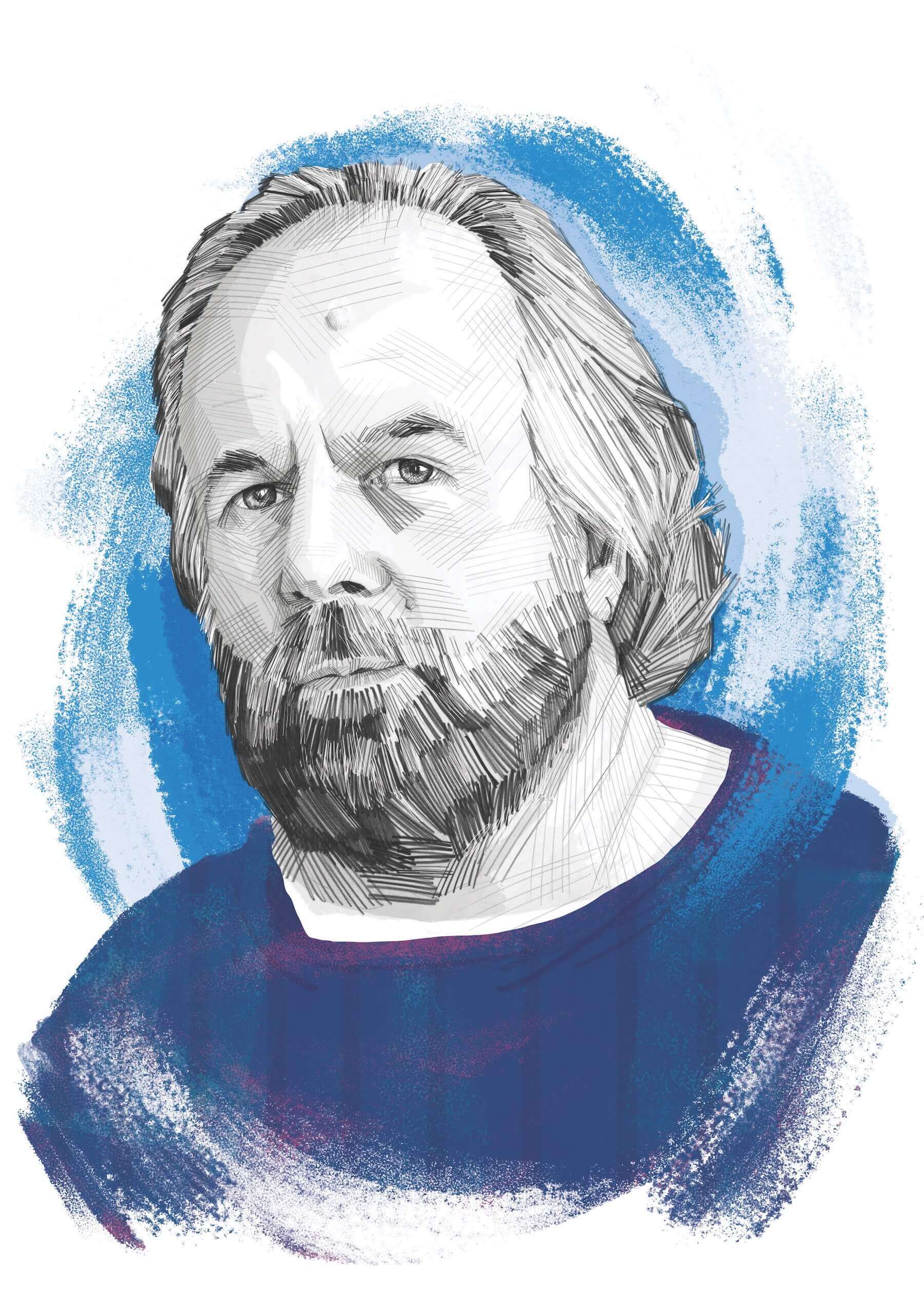
Five Questions for Michael Waters
The English professor and celebrated poet talks craft, inspiration, and the essential nature of poetry.
You’re at work on your 13th book of poetry, which you’ve said will focus on “bridging the old world with the new.” What do you mean by that?
The last time I was in Romania, I saw a family with a new car. They had brought the car to a monastery and asked the head monk, the abbot of the monastery, to bless it. They had all of the doors of the car open, and the hood was up, and the trunk was up, and the family was standing around in their Sunday best. And the abbot was walking around the car, sprinkling it with holy water, and reciting prayers so that the family would be safe in that car—so that’s the old world and the new world right there.
How do you pick the theme for your books?
I don’t. What happens is I start writing poems and, after a while, I notice that there are thematic or stylistic consistencies… I see them starting to form a book rather than a collection of poems. And then, maybe, I might start leaning toward that. And when I feel the book is finished, I really just go on writing poems and see what else starts to rise.
In terms of process then, do you wait for inspiration to strike?
There’s a quote by a famous artist, Chuck Close: “Inspiration is for amateurs.” So, no, it really is the work itself. It’s the sitting down at the desk to do the work… Writing is a process. I don’t think of it as a product… For me, the line is the most important part of poetry. Each line has its own integrity, so I tend to write line by line.
What advice do you share with students when it comes to writing creatively?
What’s important is not to dress like a writer, or talk like a writer, act like a writer, or drink like a writer! What you have to do is actually write. You have to put pen to paper and learn your craft.
Being a poet for nearly five decades, how do you think the art form is faring in a modern, digital world that’s so full of distractions?
People turn to poetry after any kind of national trauma. After 9/11, for example, there was poetry chalked all over the streets of New York, so it seems poetry is essential to our lives. There always seems to be a hunger for poetry throughout the centuries.
Michael Waters is a 2017 recipient of the prestigious John Simon Guggenheim Memorial Foundation Fellowship, which honors prior achievement and exceptional promise. His 12th book of poetry, The Dean of Discipline, is due out in early 2018.